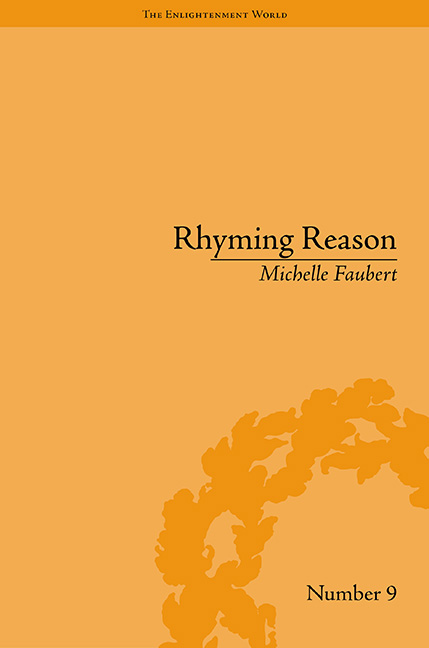Book contents
- Frontmatter
- CONTENTS
- Dedication
- Acknowledgements
- Preface: Psychologist-Poets, Disciplinary Power and the Modern Subject
- Introduction: Romantic-Era Psychologist-Poets and the Historical Context of Early British Psychology
- 1 Erasmus Darwin, James Beattie and Nathaniel Cotton as Pre-Romantic Psychologist-Poets
- 2 The Human Touch: Thomas Bakewell, Andrew Duncan Sr, John Ferriar and Moral Management
- 3 Thomas Trotter, William Perfect and Thomas Beddoes: Nervous Illness and Social Hygiene
- 4 The Unelected Legislator: Associationism and Thomas Brown's Subliminal Poetic Lessons
- Conclusion: Thomas Forster, Phrenology and the Reification of the Disciplines
- Notes
- Works Cited
- Index
1 - Erasmus Darwin, James Beattie and Nathaniel Cotton as Pre-Romantic Psychologist-Poets
- Frontmatter
- CONTENTS
- Dedication
- Acknowledgements
- Preface: Psychologist-Poets, Disciplinary Power and the Modern Subject
- Introduction: Romantic-Era Psychologist-Poets and the Historical Context of Early British Psychology
- 1 Erasmus Darwin, James Beattie and Nathaniel Cotton as Pre-Romantic Psychologist-Poets
- 2 The Human Touch: Thomas Bakewell, Andrew Duncan Sr, John Ferriar and Moral Management
- 3 Thomas Trotter, William Perfect and Thomas Beddoes: Nervous Illness and Social Hygiene
- 4 The Unelected Legislator: Associationism and Thomas Brown's Subliminal Poetic Lessons
- Conclusion: Thomas Forster, Phrenology and the Reification of the Disciplines
- Notes
- Works Cited
- Index
Summary
I. ‘To inlist Imagination under the banner of Science’
As pre-Romantic influences on the tradition of poetry by early psychologists, Erasmus Darwin, Nathaniel Cotton and James Beattie represent the various forces that contributed to the literary tradition and psychological approaches as I will discuss them in the subsequent chapters. Romanticism, I contend, was synchronous with the reification of the discipline of psychology, which saw the field fragment into various schools, like moral management, nerve theory, associationism and phrenology, all of which I will examine in the following chapters. Even though this process was not complete by the end of the Romantic period – which is evident even with respect to the few figures I study here because their writings may be said to contribute at once to several different approaches – the fact that various doctors of the mind were beginning to devote their entire written oeuvres to single approaches is an indication that the field of psychology was beginning to splinter into the multifaceted field that we know today, in which psychologists tend to profess and practice single ways of approaching psychological health, like behaviouralism, psychoanalysis and the like. As the best-known of the psychologist-poets and the most wide-ranging in his interests, I will examine Erasmus Darwin in the first part of this chapter by way of an introduction to the psychologist-poets’ tradition. Darwin's verse serves as a good introduction because he represents the Scottish Enlightenment ideal of the scientist as polymath and not only in his bridging of the scientific and literary realms: just as Darwin himself cannot be classified as only a biologist, psychologist, inventor, physician or poet, so, too, does his verse show the broad range of scientific interests for which students of the Scottish Enlightenment are celebrated. The contrast between Darwin's materialist, frankly earthy approach and the deeply religious foci of Cotton and Beattie also reveals how deep were the divisions between interpretations of the mind even in the eighteenth century.
- Type
- Chapter
- Information
- Rhyming ReasonThe Poetry of Romantic-Era Psychologists, pp. 29 - 74Publisher: Pickering & ChattoFirst published in: 2014



